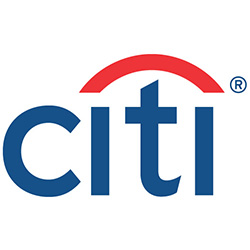Strategy
Citi Favors US Over Chinese Equities

David Bailin, chief investment officer and global head of investments at Citi Global Wealth, discusses the global economy and investment outlook, highlighting concerns about the Chinese economy and worries about insolvent real estate firms as well as problems in its wealth sector.
David Bailin, chief investment officer and global head of investments, at Citi Global Wealth has highlighted upward revisions to its US growth forecasts for 2023 and downward revisions to China, causing a reallocation in the firm’s equity positions within global markets.
Bailin underlined that China’s outlook appears increasingly dependent on a change of approach from China’s policymakers. The US, meanwhile, is seeing a virtuous cycle of demand strength outlasting contractionary forces, which can be seen in falling business inventories.
As a result of this change of circumstance, the firm has modified its economic forecasts. “We’ve raised our 2023 US real GDP forecast by +1.3 per cent and cut China’s estimate the same amount. This is a substantial change in fortune for the world’s leading economies,” Bailin said in a statement. Concerns about the Chinese economy and worries about insolvent real estate firms have also been highlighted by other private banks. See more here.
“Our forecasts for China and the US in 2024 also reflect notable updates. Among these are a recognition that slowing growth in China has knock-on impacts for certain regional economies and Europe. We are mindful that the impact of tighter monetary policy in the US will increase in 2024,” Bailin continued. “Higher rates must impact employment growth negatively, even as services and manufacturing settle into more normal ranges. Moreover, Fed Chairman Powell’s speech at Jackson Hole, Wyoming (August 2023) continued to emphasize the need for cooling labor markets almost regardless of their direct impact on inflation measures.”
However, Bailin does not rule out a recovery in China. “Should policymakers provide substantial assistance to the real estate sector, implement incentives to boost domestic consumption and encourage more investment in productive assets, China has the wherewithal to return to a higher rate of growth. In addition, more consistent policies regarding the governance of their technology and other 'socially impactful' companies are necessary to restore investor confidence,” he said.
Portfolio
With Fed Chairman Powell hawkish and the US dollar rebounding,
Bailin has added an Equal Weight S&P 500 Index position
at the expense of China, Hong Kong and Brazil shares. “Our
weighting in China equities moved to neutral and we eliminated
over-weights in Hong Kong, Australia and Brazil, some of the most
directly impacted markets. We raised our allocation to US
equities by an equal 2.5 percentage points. This leaves our
allocation to global fixed income overweight by 1 percentage
point (highly concentrated in high quality US bonds), global
equities neutral and cash underweight by 1 percentage point,” he
said.
Nevertheless, he still expects a slowdown to come for the US, particularly for US labor markets in the coming year. “Eventually, bearish bond investors will cover record high short positions in US Treasuries much as equities investors did in early 2023,” he said.
He continues to be overweight in US investment grade bonds, particularly Treasuries with increasingly attractive future real yields. Higher US yields reflect the view that US monetary policy can remain sustainably tight. This is not his view for 2024, as he sees softening employment, a slower US economy and exported deflation form China as likely to reduce pressure on yields in 2024.
The firm’s Global Investment Committee (GIC) also considered adding more to its fixed income allocations, particularly in the US. One of the reasons why this could be appealing was the historically extreme negative positioning of markets. Just as short interest in equities at the start of 2023 was at a record high, so now is short interest in both US Treasury 10-year notes and two-year notes. He believes that this positioning is indicative of fear that Powell will continue to raise rates and a secondary view that inflation will rise again. Following a strong performance of equities in the first half of 2023 – caused by covering record high short positions – he believes that there may be a rally in fixed income next. “This could be driven by any signs that the US is not sustaining miraculously strong growth,” Bailin concluded.